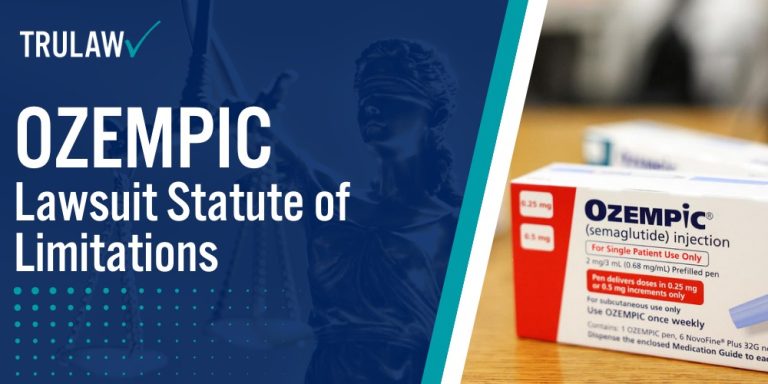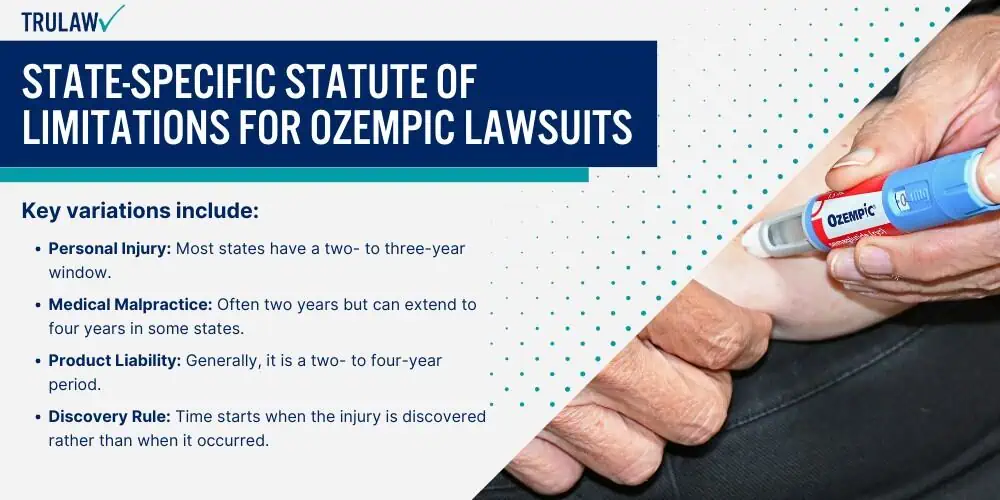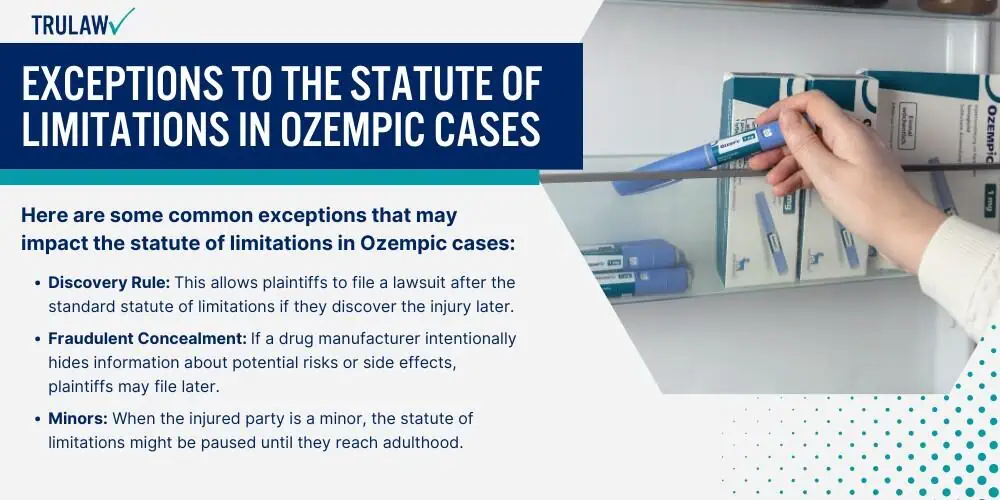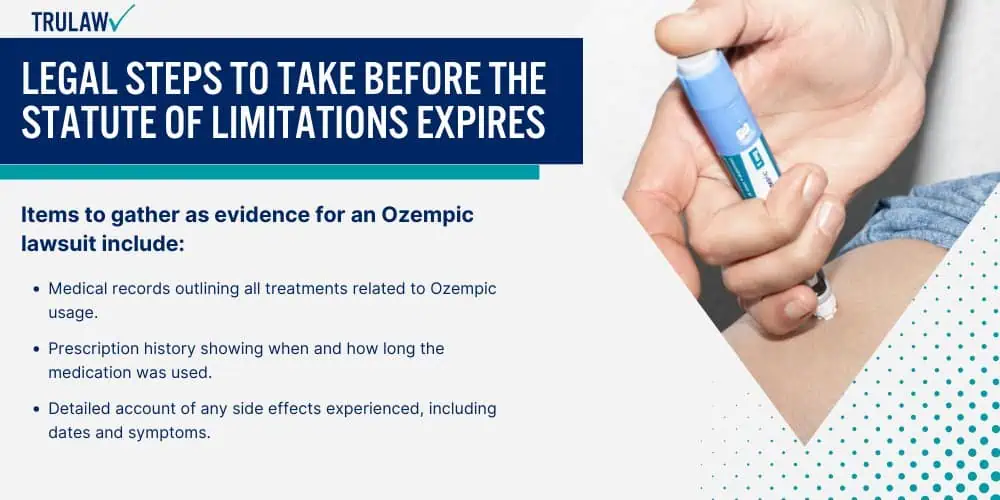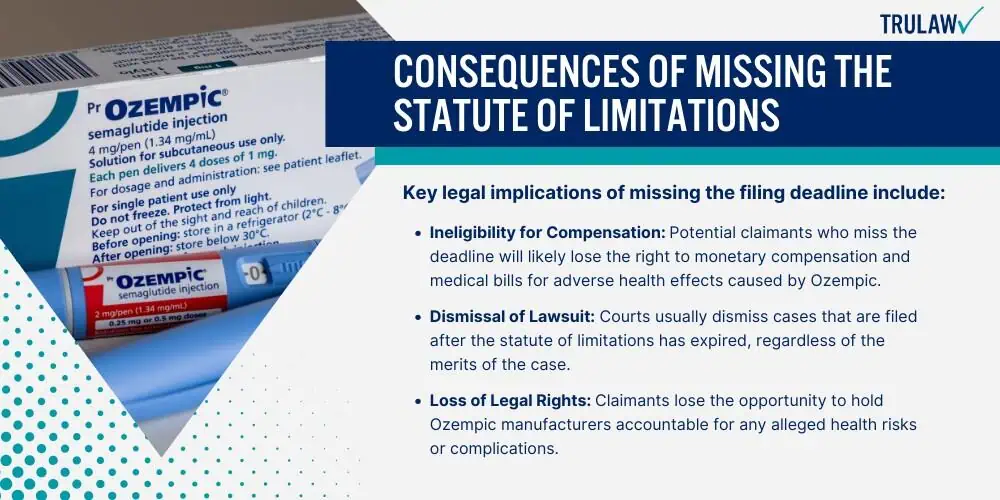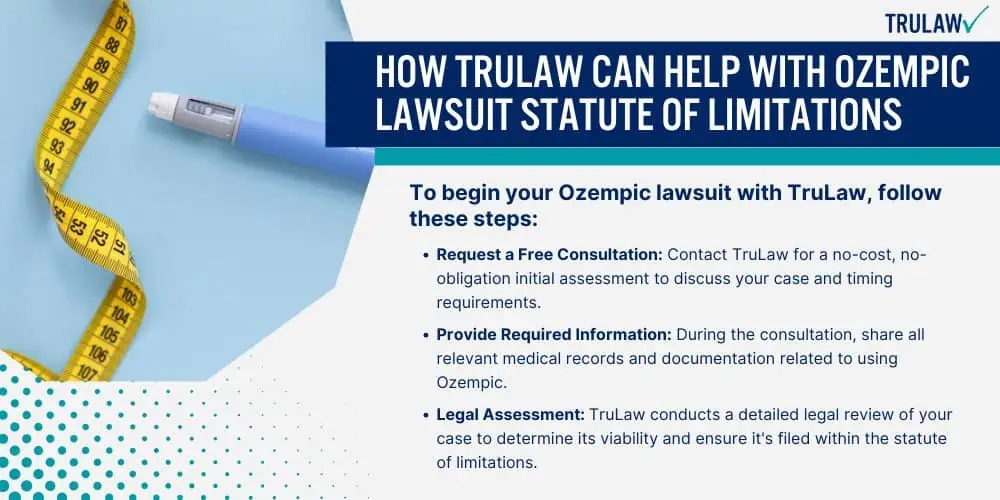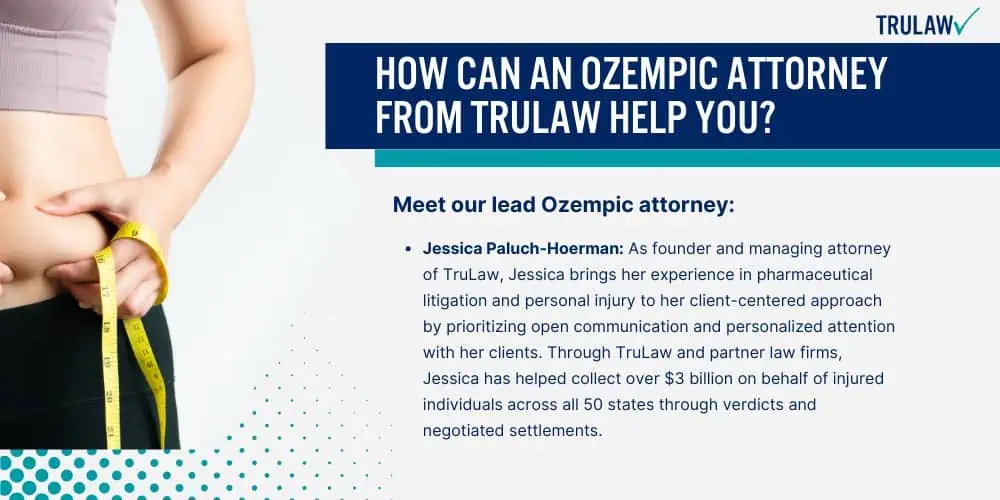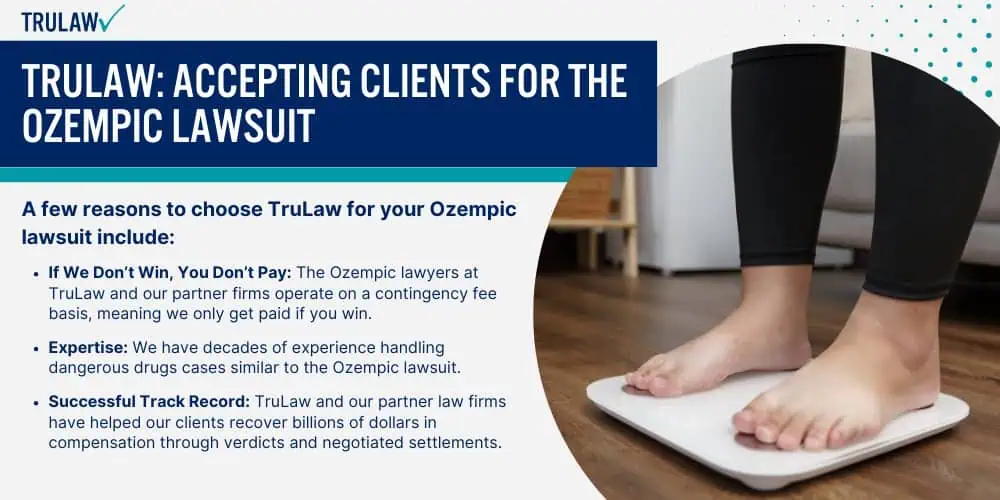Understanding the timelines for filing an Ozempic lawsuit is critical for preserving legal rights.
Factors influencing the statute of limitations include the type of claim, individual circumstances, and the jurisdiction where the legal action is initiated.
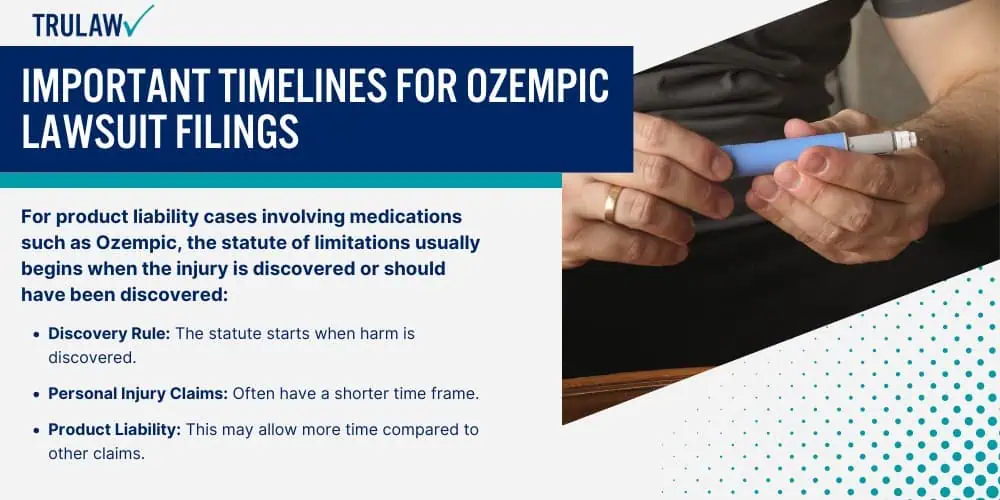
The Basics of Ozempic Statute of Limitations
The statute of limitations sets a deadline for plaintiffs to file lawsuits.
Ozempic-related lawsuits typically involve product liability, personal injury, or fraud claims.
Each type has its own specific time frame within which a lawsuit must be filed.
For product liability cases involving medications such as Ozempic, the statute of limitations usually begins when the injury is discovered or should have been discovered.
- Discovery Rule: The statute starts when harm is discovered.
- Personal Injury Claims: Often have a shorter time frame.
- Product Liability: This may allow more time compared to other claims.
- Fraud Claims: Also have specific deadlines.
- Jurisdictional Differences: Vary based on location.
Typical Statute of Limitations for Ozempic Claims
The typical statute of limitations for filing an Ozempic lawsuit varies by jurisdiction and claim type.
Most states impose a statute of limitations of two to three years for personal injury and product liability claims.
This means plaintiffs have this period from the date of injury discovery to file a lawsuit.
Factors to consider:
- Personal Injury: 1 to 3 years typically.
- Product Liability: 2 to 4 years in many areas.
- Fraud: Time frames can differ widely.
- State Laws: Each state has its own limits.
Factors That Can Affect the Statute of Limitations
Several factors can influence the statute of limitations for an Ozempic lawsuit.
These factors can extend or shorten the time frame for legal action, making it vital to consult legal advice early.
Key factors include:
- Age of Plaintiff: Minors may have different timelines.
- Discovery of Injury: When the harm is identified.
- State Laws: Variations in legal process deadlines.
- Legal Exceptions: Fraudulent concealment may extend timelines.
- Medical Insights: New findings can impact deadlines.
These timelines are essential for building a strong case and ensuring accountability, especially for those affected by medication-related injuries.
Consulting with legal medical professionals can provide guidance on specific circumstances related to filing an Ozempic lawsuit.
